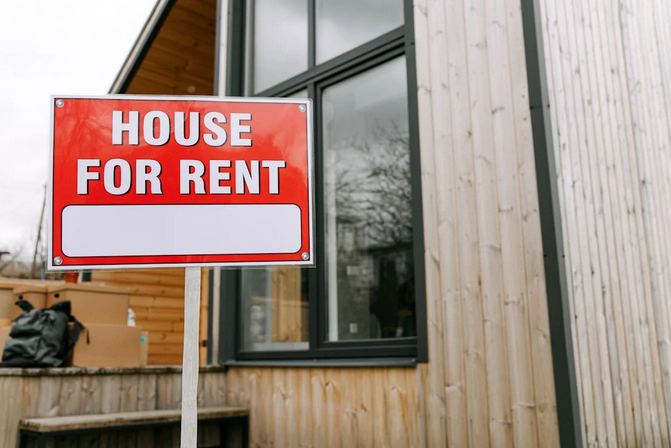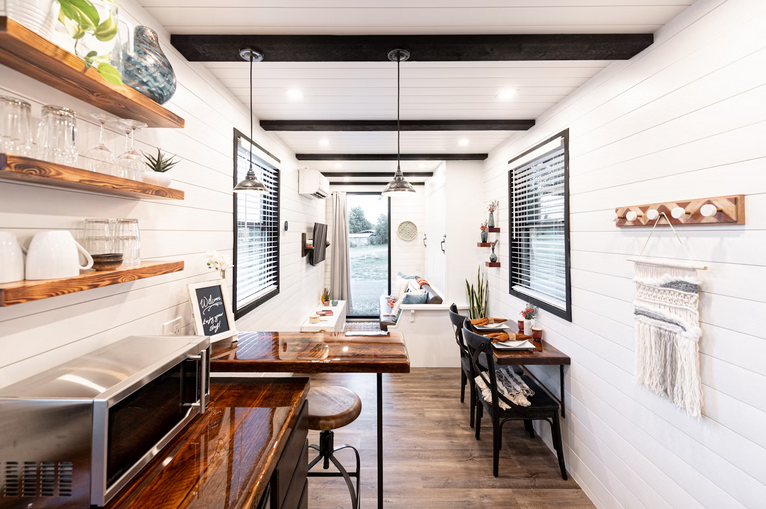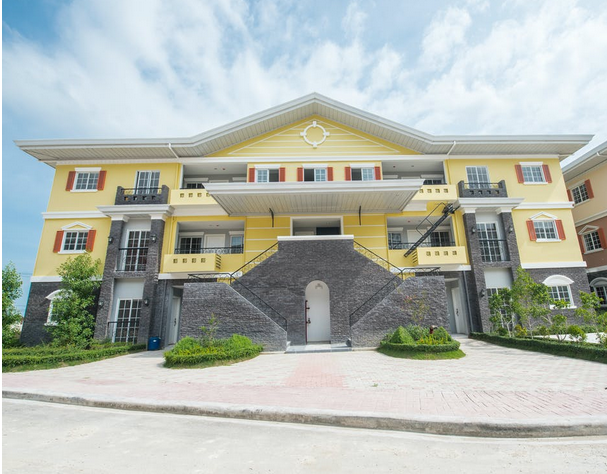Increasing your property’s appeal does not always require major renovations. Small, thoughtful changes can have a significant impact, especially the backyard renovation impact on resale value. These upgrades attract buyers, renters, or simply create a more enjoyable home environment. The key is to focus on improvements that are noticeable, practical, and enhance comfort. A few strategic updates can transform a space from ordinary to inviting. They make your property feel cared for and modern. With careful planning, these simple steps deliver big results without breaking the budget.
Refreshing Curb Appeal
First impressions matter. The exterior of your property sets the tone for visitors or potential buyers. A freshly painted front door can instantly add character. Maintaining the lawn, trimming bushes, and planting seasonal flowers create a welcoming look. Even small details like polished house numbers, new mailboxes, or clean walkways contribute to overall charm. Simple landscaping adjustments can completely change how a property is perceived. This is one area where minor effort results in maximum impact.
Upgrading Lighting Fixtures
Lighting plays a key role in creating a warm and inviting atmosphere. Replacing outdated light fixtures with modern designs enhances both function and style. Consider energy-efficient options for cost savings over time. Well-lit spaces appear larger and more welcoming. Outdoor lighting along pathways or near entrances increases safety and curb appeal. Even swapping old bulbs for brighter, warmer ones can dramatically improve the look and feel of a room. Thoughtful lighting upgrades make a property feel cared for and contemporary.
Improving Interior Paint and Walls
Fresh paint is one of the most effective upgrades. Neutral shades appeal to a wide range of tastes and allow potential buyers to envision their own style. Accent walls or subtle textures can add character without overwhelming a space. Repairing minor wall imperfections ensures a polished appearance. A clean, freshly painted interior signals maintenance and attention to detail. Walls are the backdrop for your home, so small improvements here create a noticeable difference.
Enhancing Flooring

Flooring affects both appearance and comfort. Replacing worn carpets or refinishing hardwood floors can immediately boost the property’s appeal. Modern vinyl or laminate options offer durability and stylish finishes at reasonable costs. Well-maintained flooring conveys quality and care. Even smaller changes, like adding new rugs or polishing existing surfaces, refresh the space. Flooring sets the tone for a room and often becomes a focal point in interior design.
Modernizing Kitchen and Bathroom Details
Kitchens and bathrooms are key areas that influence perception of value. Simple upgrades, like changing cabinet handles, faucets, or light fixtures, can modernize the space. Re-grouting tiles or replacing worn countertops also creates a clean, updated look. You do not need a full remodel to make an impact. Even small improvements here give a sense of modernity and cleanliness. These are areas where attention to detail makes a strong impression.
Adding Smart Storage Solutions
Clutter-free spaces appear larger and more inviting. Adding storage solutions increases both functionality and appeal. Shelving, built-in cabinets, or multifunctional furniture help organize everyday items. Smart storage makes a property feel practical without sacrificing style. Buyers and residents alike appreciate spaces that are easy to maintain. Efficient storage enhances the overall experience of living in the property. It also contributes to a neat, welcoming presentation.
Upgrading Outdoor Spaces
Outdoor areas are extensions of the home and should not be overlooked. Small improvements such as new patio furniture, outdoor rugs, or planters create a relaxing environment. Maintaining decks, fences, and garden beds ensures the space looks cared for. Outdoor enhancements make a property feel complete and usable. They offer additional living space for leisure or entertaining. Even minor upgrades can make a backyard feel like a unique retreat.
Consistency in design and maintenance elevates the overall appeal. Cohesive color palettes, matching fixtures, and complementary materials give a polished impression. Regular maintenance, like cleaning windows, gutters, and outdoor features, supports this effort. These actions demonstrate …





 An investor’s reputation is one of the most valuable assets in real estate. Ethical behavior attracts like-minded partners, quality tenants, and discerning buyers. Investors known for fairness, transparency, and social responsibility are likely to gain access to exclusive opportunities and favorable deals. Over time, a strong reputation reduces transaction friction, builds stakeholder trust, and ensures longevity in a competitive market. Ethical investors create a virtuous cycle, where responsible behavior reinforces credibility, providing financial and societal benefits.
An investor’s reputation is one of the most valuable assets in real estate. Ethical behavior attracts like-minded partners, quality tenants, and discerning buyers. Investors known for fairness, transparency, and social responsibility are likely to gain access to exclusive opportunities and favorable deals. Over time, a strong reputation reduces transaction friction, builds stakeholder trust, and ensures longevity in a competitive market. Ethical investors create a virtuous cycle, where responsible behavior reinforces credibility, providing financial and societal benefits.





















 The first step in choosing the best storage unit for your needs is to determine what you need to store. Make a list of all the items you need to put in storage, and then group them by size. This will help you determine the approximate size of the storage unit you need. It’s important to remember that you may need to access your stored items from time to time, so you’ll want to make sure that the unit is large enough to move around easily. Once you know the approximate size of storage unit you need, you can start looking at different storage facilities. When comparing facilities, pay attention to security, climate control, and price.
The first step in choosing the best storage unit for your needs is to determine what you need to store. Make a list of all the items you need to put in storage, and then group them by size. This will help you determine the approximate size of the storage unit you need. It’s important to remember that you may need to access your stored items from time to time, so you’ll want to make sure that the unit is large enough to move around easily. Once you know the approximate size of storage unit you need, you can start looking at different storage facilities. When comparing facilities, pay attention to security, climate control, and price. The next things you’ll want to compare are the gate and office hours. Most storage units will have different hours for each. The gate hours are usually when you can access your unit. The office hours are usually when someone is available to help you with anything you need. You’ll want to make sure that the hours work for you and that you’ll be able to access your unit when you need to.
The next things you’ll want to compare are the gate and office hours. Most storage units will have different hours for each. The gate hours are usually when you can access your unit. The office hours are usually when someone is available to help you with anything you need. You’ll want to make sure that the hours work for you and that you’ll be able to access your unit when you need to. The first step is to visit a few different storage units in your area. This way, you can get a feel for the space and see what each facility offers. If possible, try to visit during different times of the day to see how busy each unit is. You should also ask about any promotions or discounts that may be available. Once you’ve narrowed down your choices, it’s time to think about what size unit you need.
The first step is to visit a few different storage units in your area. This way, you can get a feel for the space and see what each facility offers. If possible, try to visit during different times of the day to see how busy each unit is. You should also ask about any promotions or discounts that may be available. Once you’ve narrowed down your choices, it’s time to think about what size unit you need.
 One of the most important things you can do to maintain or increase the value of your home is to keep it in good repair. This means regularly fixing any issues, such as leaks, cracks, or damage. It also means keeping up with trends by painting the walls or replacing old appliances.
One of the most important things you can do to maintain or increase the value of your home is to keep it in good repair. This means regularly fixing any issues, such as leaks, cracks, or damage. It also means keeping up with trends by painting the walls or replacing old appliances. Energy efficiency is becoming increasingly important to buyers, so making your home more energy-efficient is an excellent way to increase its value. If your home has good energy efficiency, it will make an excellent first impression and be more likely to sell for a higher price.
Energy efficiency is becoming increasingly important to buyers, so making your home more energy-efficient is an excellent way to increase its value. If your home has good energy efficiency, it will make an excellent first impression and be more likely to sell for a higher price. If you increase the size of your home, such as by adding an addition or finishing the basement, do it. It will make your home more valuable and appealing to potential buyers. Instead of tearing down walls to create an open floor plan, consider adding. This will give you the extra space you desire without compromising the value of your home.
If you increase the size of your home, such as by adding an addition or finishing the basement, do it. It will make your home more valuable and appealing to potential buyers. Instead of tearing down walls to create an open floor plan, consider adding. This will give you the extra space you desire without compromising the value of your home.
 One of the most important things you can do to maintain your water filtration system is regularly changing the filter. The filter is what removes all the contaminants from your water, so if it’s not changed often enough, your water will not be as clean as it should be. Most filters need to be replaced every six months to a year, depending on your filter type.
One of the most important things you can do to maintain your water filtration system is regularly changing the filter. The filter is what removes all the contaminants from your water, so if it’s not changed often enough, your water will not be as clean as it should be. Most filters need to be replaced every six months to a year, depending on your filter type. Finally, to finish the maintenance session, you need to test the water pressure at each faucet. If the water pressure is too low, it may signify that the filter needs to be replaced. Low water pressure can also indicate a problem with the unit itself. So it’s a good idea to test the water pressure at each faucet every once in a while to ensure that everything is running smoothly.
Finally, to finish the maintenance session, you need to test the water pressure at each faucet. If the water pressure is too low, it may signify that the filter needs to be replaced. Low water pressure can also indicate a problem with the unit itself. So it’s a good idea to test the water pressure at each faucet every once in a while to ensure that everything is running smoothly.
 One of the easiest ways to create a great home environment is to use neutral colors. Neutral colors are calming and relaxing, and they can help to make your home feel more spacious. There are many different shades of neutrals, so you can choose those best fit your personality and style. It would help if you researched the types of neutrals available before deciding on a color palette. If you choose colors that don’t go together or clash with other elements in your home, it will not create a good environment for you and your family to live in.
One of the easiest ways to create a great home environment is to use neutral colors. Neutral colors are calming and relaxing, and they can help to make your home feel more spacious. There are many different shades of neutrals, so you can choose those best fit your personality and style. It would help if you researched the types of neutrals available before deciding on a color palette. If you choose colors that don’t go together or clash with other elements in your home, it will not create a good environment for you and your family to live in. Another great way to create a great home environment is by replacing your furniture with more comfortable options. The right furniture can make all the difference, and you must choose stylish and functional pieces. If possible, try to buy new furniture every few years so that you always have an updated look in your home. This is why you must create a budget before going shopping.
Another great way to create a great home environment is by replacing your furniture with more comfortable options. The right furniture can make all the difference, and you must choose stylish and functional pieces. If possible, try to buy new furniture every few years so that you always have an updated look in your home. This is why you must create a budget before going shopping.


 A clean home is like paradise and it is always tempting to visit a clean home. For more information visit
A clean home is like paradise and it is always tempting to visit a clean home. For more information visit  It will be more relaxing going into a bed with new sheets and saying goodnight in an organized home, and you will feel more relaxed in the morning. Crawling-age toddlers can pick up anything off the floor and put it in their mouths. With a clean home, you can spend less time looking for lost items. You will feel better when your home is organized, as you will discover exactly what you need in place.
It will be more relaxing going into a bed with new sheets and saying goodnight in an organized home, and you will feel more relaxed in the morning. Crawling-age toddlers can pick up anything off the floor and put it in their mouths. With a clean home, you can spend less time looking for lost items. You will feel better when your home is organized, as you will discover exactly what you need in place.
 The age of your children can help you decide where to place their rooms. If you are building a home and have several children, consider a children’s wing with at least one private bathroom that they can share. There may be a dedicated playroom or shared activity area nearby. If you are renovating the attic, build a study area under the dormer and turn it into a combination of bedroom and play area. For younger children, you may choose to place your rooms closer to the master suite. Teen rooms can be placed better further away to give them and you more privacy.
The age of your children can help you decide where to place their rooms. If you are building a home and have several children, consider a children’s wing with at least one private bathroom that they can share. There may be a dedicated playroom or shared activity area nearby. If you are renovating the attic, build a study area under the dormer and turn it into a combination of bedroom and play area. For younger children, you may choose to place your rooms closer to the master suite. Teen rooms can be placed better further away to give them and you more privacy. If you’re finishing a basement or an entire
If you’re finishing a basement or an entire 
 The first thing you should think about when installing a new driveway is its purpose. You might think that the objective is to provide a parking space for a car, but there are a few more factors to consider. Occasionally, a driveway could be used as a turning point or could be the place where you keep your boat. The purpose and general use of your driveway should be considered when choosing the right equipment for your driveway. If you want to build a more visually attractive driveway, you can prefer brick, stone, concrete, or asphalt, depending on your choice. The level of pedestrian and automotive use of your driveway will influence the type of material you choose to make it more attractive.
The first thing you should think about when installing a new driveway is its purpose. You might think that the objective is to provide a parking space for a car, but there are a few more factors to consider. Occasionally, a driveway could be used as a turning point or could be the place where you keep your boat. The purpose and general use of your driveway should be considered when choosing the right equipment for your driveway. If you want to build a more visually attractive driveway, you can prefer brick, stone, concrete, or asphalt, depending on your choice. The level of pedestrian and automotive use of your driveway will influence the type of material you choose to make it more attractive. Your driveway should reflect your design while adapting to the limitations of your home and location. Fortunately,
Your driveway should reflect your design while adapting to the limitations of your home and location. Fortunately, 

 Room Insulation
Room Insulation

 The timing and commitment may be judged by the comments and opinions of this professional’s clients that you are likely to use. If you understand that the contractor or builder has received testimonials or complaints about contract deadlines, it is best to stop them. Remember that you will end up paying when contractors finish the program. Your work may be affected by changing weather conditions. By avoiding contractors who are not busy, you can save time and money. On the other hand, a dedicated contractor can finish the job and protect you from frustration and stress.
The timing and commitment may be judged by the comments and opinions of this professional’s clients that you are likely to use. If you understand that the contractor or builder has received testimonials or complaints about contract deadlines, it is best to stop them. Remember that you will end up paying when contractors finish the program. Your work may be affected by changing weather conditions. By avoiding contractors who are not busy, you can save time and money. On the other hand, a dedicated contractor can finish the job and protect you from frustration and stress. Trust and Reputation
Trust and Reputation
 Wallpaper is and is something that most of us understand through evaluation. The technology has improved so much that today there are many improvements. This usually means that you can choose a laminated vinyl base and embossed fabric, whatever is acceptable for the vinyl destination. If you introduce wallpaper at 24 years old, the best thing to do is to get rid of any clutter or mess, you could have our walls. This goes hand in hand with wallpaper products to decorate rooms with wallpaper here and there, apparently. Always remember that there is a bedroom that seems to have a fresher and better charm.
Wallpaper is and is something that most of us understand through evaluation. The technology has improved so much that today there are many improvements. This usually means that you can choose a laminated vinyl base and embossed fabric, whatever is acceptable for the vinyl destination. If you introduce wallpaper at 24 years old, the best thing to do is to get rid of any clutter or mess, you could have our walls. This goes hand in hand with wallpaper products to decorate rooms with wallpaper here and there, apparently. Always remember that there is a bedroom that seems to have a fresher and better charm. If you are thinking of redesigning your bedroom, you may need a flooring upgrade. We need to keep the balance. For example, you can’t expect to choose a plan next to a plan that doesn’t look good. Anything that has paint on the wall, dark carpets or furniture, and colored floors with a colored curtain is beautiful. Everyone has a taste for color, mine is light grey and soft for me. If you follow these thoughts, you can do wonders, and the bedrooms have been observed by me. It is a bedroom, and one would wonder many things about it. You will have to design the mattress in the closet to store your clothes and makeup tables. First practice, choose the crowd and make the room look great. The first step would be to determine strategies to improvise how to use the space.
If you are thinking of redesigning your bedroom, you may need a flooring upgrade. We need to keep the balance. For example, you can’t expect to choose a plan next to a plan that doesn’t look good. Anything that has paint on the wall, dark carpets or furniture, and colored floors with a colored curtain is beautiful. Everyone has a taste for color, mine is light grey and soft for me. If you follow these thoughts, you can do wonders, and the bedrooms have been observed by me. It is a bedroom, and one would wonder many things about it. You will have to design the mattress in the closet to store your clothes and makeup tables. First practice, choose the crowd and make the room look great. The first step would be to determine strategies to improvise how to use the space.
 Checking your air filter should be the first list to do when whistling sound problems appear. All
Checking your air filter should be the first list to do when whistling sound problems appear. All  A duct furnace is essential to separate the combustion air if the additional heat source is needed. As it links to the furnace, it is necessary to scan the problem in the duct. You can directly examine if there is a pit in the duct near the junction that links the heater and the blower.
A duct furnace is essential to separate the combustion air if the additional heat source is needed. As it links to the furnace, it is necessary to scan the problem in the duct. You can directly examine if there is a pit in the duct near the junction that links the heater and the blower. 




